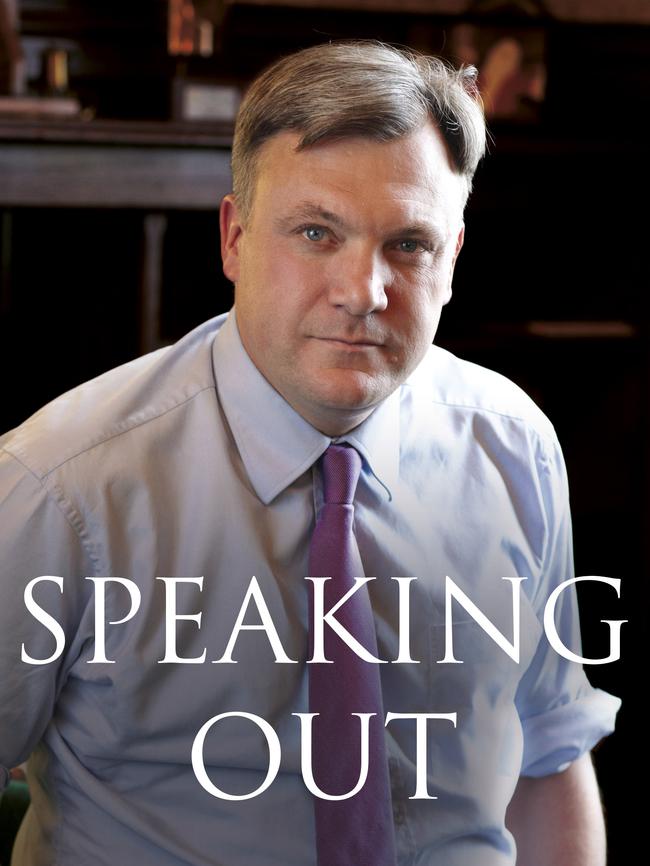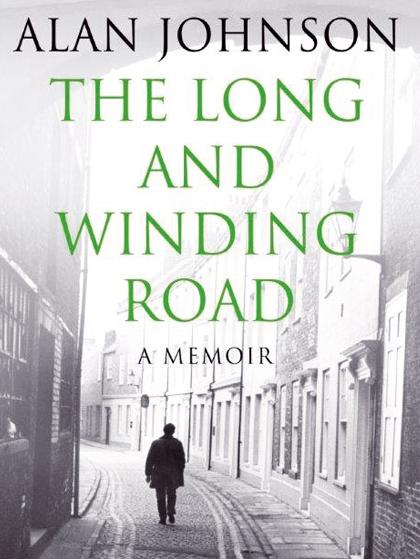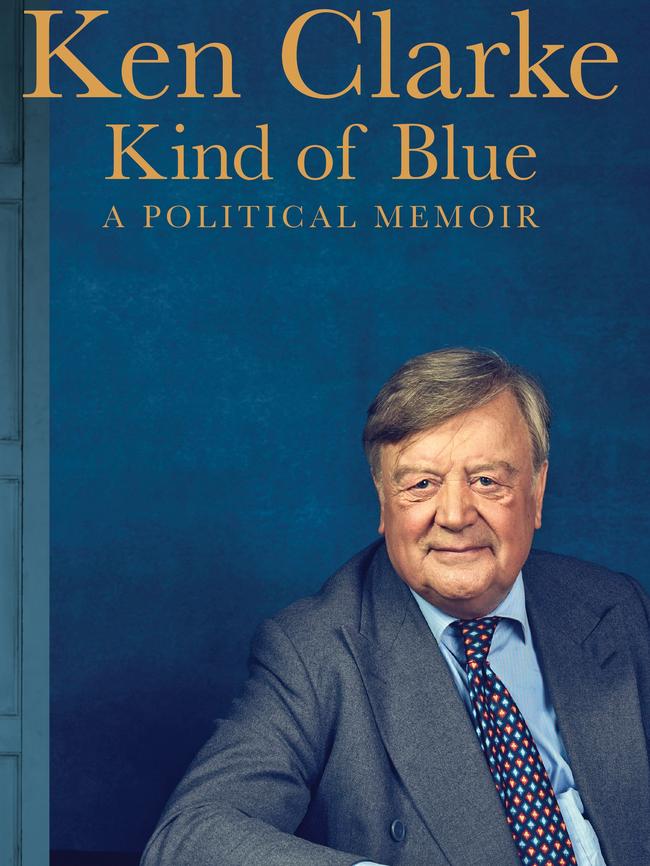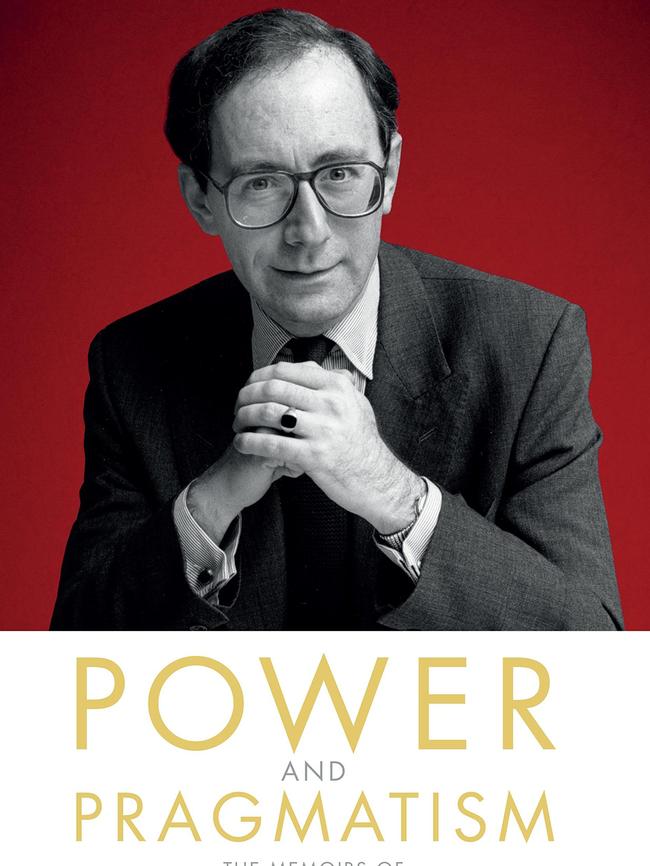Political memoirs: Ed Balls, Ken Clarke, Alan Johnson, Malcolm Rifkind
Recent British political memoirs highlight risks in the sort of ‘modern’ government that also dominates Australia.

Millions of words have been written over the past 12 months about the state of global politics. As the world grapples with the revenge of the disenfranchised and disenchanted, and goggles at the rolling daily drama of Trumpism, it’s in Britain that the tendrils of the body politic are perhaps most under strain. A federation within a federation, Britain has already left Europe, and Scotland may yet leave Britain, meaning that rising nationalism actually destroys the nation.
Moderate progressives and political professionals watch in agony as the once electorally dominant Labour Party seems determined to make itself unelectable. There is serious talk of a split for the first time since the 1980s. In recent weeks Labour managed the unthinkable: losing a held seat to the Tories in a by-election, the first time a governing party has won a seat from the opposition in a by-election since 1982.
On the Tory side, their electoral dominance masks real divisions about Europe, openness and immigration. The architects and leaders of the Conservative Leave campaign, Boris Johnson and Michael Gove, had one of the most spectacular fallings-out in British political history when Gove betrayed his ally and made a lunge for the Tory leadership himself, thus denying them both the prize.
And so the rash of political autobiographies emanating from Britain at the moment is good news for political bibliophiles. There’s something about British politicians and their writings. The literary tradition in the House of Commons is strong and enduring. The best political diaries are British (think Chips Channon and Alan Clark). Those who never quite make it to prime minister tend to write magnificent memoirs. Denis Healey’s The Time of My Life (1989), for example, has been declared the best political autobiography of the 20th century. Roy Jenkins’s A Life at the Centre (1991) is more memorable than the average memoir. American political books tend to be anodyne electoral pamphlets in a more expansive form. British political books are the real deal.
The recent autobiographies of Ed Balls, Alan Johnson, Ken Clarke and Malcolm Rifkind are worthy additions to this great tradition. Every political autobiography has its fair share of self-justification and “get-square” with opponents and enemies. But these books have less than most. I think each one is worthwhile reading for anyone with an interest in British political history. And in the present sense, these leading thinkers provide insights on the enormous pressures bearing down on British politics and society. Collectively spanning several decades from Margaret Thatcher to David Cameron, the books provide a history of the changes in governing culture and political management. Taken together, they paint a story of the collapse of collective cabinet government and make a powerful case for its restoration.
Let’s start with the best of them. Full disclosure: I know Labour’s Ed Balls and like him. We held equivalent roles when he was shadow chancellor. On election day in May 2015, he was well aware he might end the night running the economy as chancellor of the exchequer. Instead, he ended the night out of parliament. Having spent most of the campaign travelling the country, helping his colleagues in marginal seats, he didn’t realise his own seat was falling from his grasp. That is every senior politician’s nightmare. He writes movingly of his emotions in the opening chapter, “Defeat”.

Balls was not a particularly popular politician, infected by years of bad press as Gordon Brown’s policy enforcer and taunted at every opportunity by Cameron and George Osborne. But Speaking Out: Lessons in Life and Politics will go a long way to introducing people to the Ed Balls his family and friends know and love (although possibly not as much as his post-career appearances on TV shows The Great British Bake Off and Strictly Come Dancing). His is the most personal and revealing of all the four books discussed here.
Balls is discreet about the Blair-Brown wars without ignoring them. There is no get-square, although his frustration at being shadow chancellor to Ed Miliband bristles on the page. As someone who has worked as treasurer and shadow treasurer with two leaders of the Labor Party, I found the revelation that Miliband and Balls had only two conversations during the entire 2015 election campaign extraordinary. A leader and the financial spokesman speaking two or three times a day during the campaign is more in keeping with my experience.
Pleasingly, Balls avoids chronology and has gone for a thematic book. No year-by-year accounts of his career. Rather he deals with the topics he regards as most important for his life and career in chapters such as “Family”, “Decisions” and “Reform”. Perhaps most importantly, he writes about discovering that he had an undiagnosed “internalised stammer” after his appointment as a minister, which explained why he at times had trouble getting his words out at the dispatch box or in interviews. Iain Dale, the British political publisher and blogger (and former Conservative candidate), calls Speaking Out “the best political book I have read this year”. I agree with him.
Alan Johnson was a very different style of British Labour politician. And the final instalment of his three-part autobiography, The Long and Winding Road, is a very different book. The first instalment, This Boy, was widely and rightly acclaimed. His account of his London childhood is like no other by a politician you will ever read. The Long and Winding Road is, almost inevitably, not as compelling, but it is nevertheless an intriguing and worthwhile read.

Whereas Balls was full of ambition (as he readily concedes in the chapter titled “Ambition”), Johnson’s approach to his career seems almost lackadaisical. He entered parliament only because Tony Blair rang him and suggested it. It had never occurred to him, despite the fact he had transitioned from being a postman to national secretary of the postal union.
This lack of burning ambition on Johnson’s part shouldn’t be mistaken for a lack of success. Quite the contrary. He was a successful cabinet minister in a range of portfolios, culminating in being appointed as Brown’s home secretary. He recounts a delightful exchange when Blair, as PM, rang him and asked him to become minister for higher education and to implement the introduction of income-contingent university fees, similar to Australia’s system.
“But I’ve never been to university,” Johnson pleaded. “Precisely,” Blair responded, alive to the fact a minister who had received a free university education would be open to a charge of hypocrisy. Johnson went on to navigate the minefield and get the job done.
Johnson is reminiscent of a bygone age, before the emergence and domination of professional politicians. But he doesn’t use his memoir to criticise the political professional class. It is a delightful book. My main criticism of it is that it ends too soon. He writes of his unsuccessful campaign for deputy Labour leader and says delphically that he thought he was up to the job of deputy leader, but not leader. Why? At Blair’s resignation, and when Brown’s fortunes plummeted, he was mooted as a potential alternative. He would have been a superior leader to Miliband (as would have Balls). But none of this is mentioned in the book. Nor is his brief period as shadow chancellor, as Balls’s predecessor. This is a good book but it would have been transformed into a great book if some of these issues had been traversed.
Another politician from a different age and a very different style is Ken Clarke. Perhaps the most anticipated of all the British political memoirs was his Kind of Blue. It was certainly anticipated by his publishers, who reportedly paid an advance of £500,000. It’s a good read but I’m not sure it’s a million-dollar one.

Clarke is one of the “big beasts” of late -0th-century British politics. He held two out of the four “great offices of state” (home secretary and chancellor, but not foreign secretary or prime minister). It wasn’t for lack of trying, having run for the Tory leadership three times, but he will be on most people’s lists of “best prime ministers we never had”. His strong Europhilism undoubtedly cost him the leadership. It also means he was seen as softer and more liberal than he really was. He had his tensions with Thatcher (who didn’t?) but regards her as the best leader he worked for.
Despite Clarke’s strong affinity for Europe, he never quite explains what his attraction to the European project was. This is symptomatic perhaps of a general guardedness that persists throughout the book. There is not much you wouldn’t know of him from looking over other biographies and profiles.
What is most compelling, though, is the picture of an old-style operator trapped in a modern government. Clarke was one of a handful of men who served in the ministry for the entirety of the Thatcher-Major government and was then brought back to serve in the Cameron government. The chapters on his early ministries can be quite turgid (although the reflection on the state of British politics in the 1970s that recounts the challenges of privatising the government-owned bus and removalist company is worth a laugh).
The book comes alive when he talks of his time after he was unexpectedly recalled by Cameron to cabinet, after Cameron defeated him (and others) for the leadership. Cameron was smart to call on such a wise and experienced head to sit in the cabinet.
But Clarke was frustrated by the lack of cabinet processes. The anger in his writing is clearest when talking about how the disastrous decision to call a referendum on European Union membership didn’t even go to cabinet.
In Australia and Britain, lack of proper cabinet government has been one of the most powerful criticisms of government in the past decade. Clarke’s defence of proper cabinet government is one of the most strident you will read. Proper cabinet government has been undermined in both Australia and Britain in modern times, and Clarke is uniquely placed to give an eloquent and passionate defence of how proper cabinet processes lead to better government decisions.
Similarly, Clarke is scathing of professional political advisers. One hilarious but telling anecdote says it all about his relationship with the spinmeisters. The PM’s media advisers informed him that a Q&A-style show he was scheduled for had been double-booked and they would take the other minister. Intrigued, he rang the producers to find out that in fact the PM’s office had informed the show Clarke was ill. Outraged at the deceit, he went on to appear on the show, completely ignoring the press secretary’s shenanigans.
Of the same vintage as Clarke, Malcolm Rifkind (John Major’s foreign secretary) strikes some similar themes Power and Pragmatism. He is too defensive of his pragmatic approach to government (he even put it in the title), which meant he frequently butted against the dogmatic Thatcher. Rifkind’s book got terrible reviews in Britain, with the charge of “boring” made frequently. This is harsh.

Yes, some of the recounting of his early years in politics is belaboured, but there are things to be learned from this book. There aren’t many successful conservative Jewish Scots in politics, so his perspective is singular and interesting. The recounting of his tussles with Thatcher about the management of the party in Scotland is a good read. And his story about the secret attempt to negotiate a long-term settlement with Argentina over the future of the Falklands is alone enough to justify a recommendation to read it.
He also provides a convincing defence to the set-up interview that trapped him (together with Labour’s Jack Straw) into agreeing to a fake arrangement set up by a tabloid newspaper. In fact, you almost get the impression that Rifkind wrote his entire autobiography just to get the chance to put his side of the story in relation to the scandal that led to the end of his career under a cloud. But it’s still a good thing he took the time to write his story.
It’s rare to find a bad autobiography by a British politician. These recent editions continue the fine tradition of excellent writing by former inhabitants of the House of Commons. Each of them is an authentic author and perhaps herein lies their most important collective lesson. Balls reveals much of himself that many voters would not have previously seen, and as a result is now more respected and popular than before. Johnson was a rare breed of authentic working-class politician in the upper echelons of British politics and his book is an honest account of his journey. Clarke and Rifkind hark back to an age that is not as long ago as it seems, when collective and thoughtful cabinet consideration was more important than the immediate spin. As voters around the world flock to flawed politicians who appear authentic, these four authors have provided a perhaps accidental reminder that you don’t need to be outrageous to be authentic.
Chris Bowen is the opposition Treasury spokesman.
Speaking Out: Lessons in Life and Politics
By Ed Balls
Hutchinson, 448pp, $55 (HB)
Kind of Blue: A Political Memoir
By Ken Clarke
Macmillan, 352pp, $32.99
The Long and Winding Road: A Memoir
By Alan Johnson
Bantam Press, 352pp, $37.99 (HB)
Power and Pragmatism
By Malcolm Rifkind
Biteback Publishing, 480pp, $39.99 (HB)


